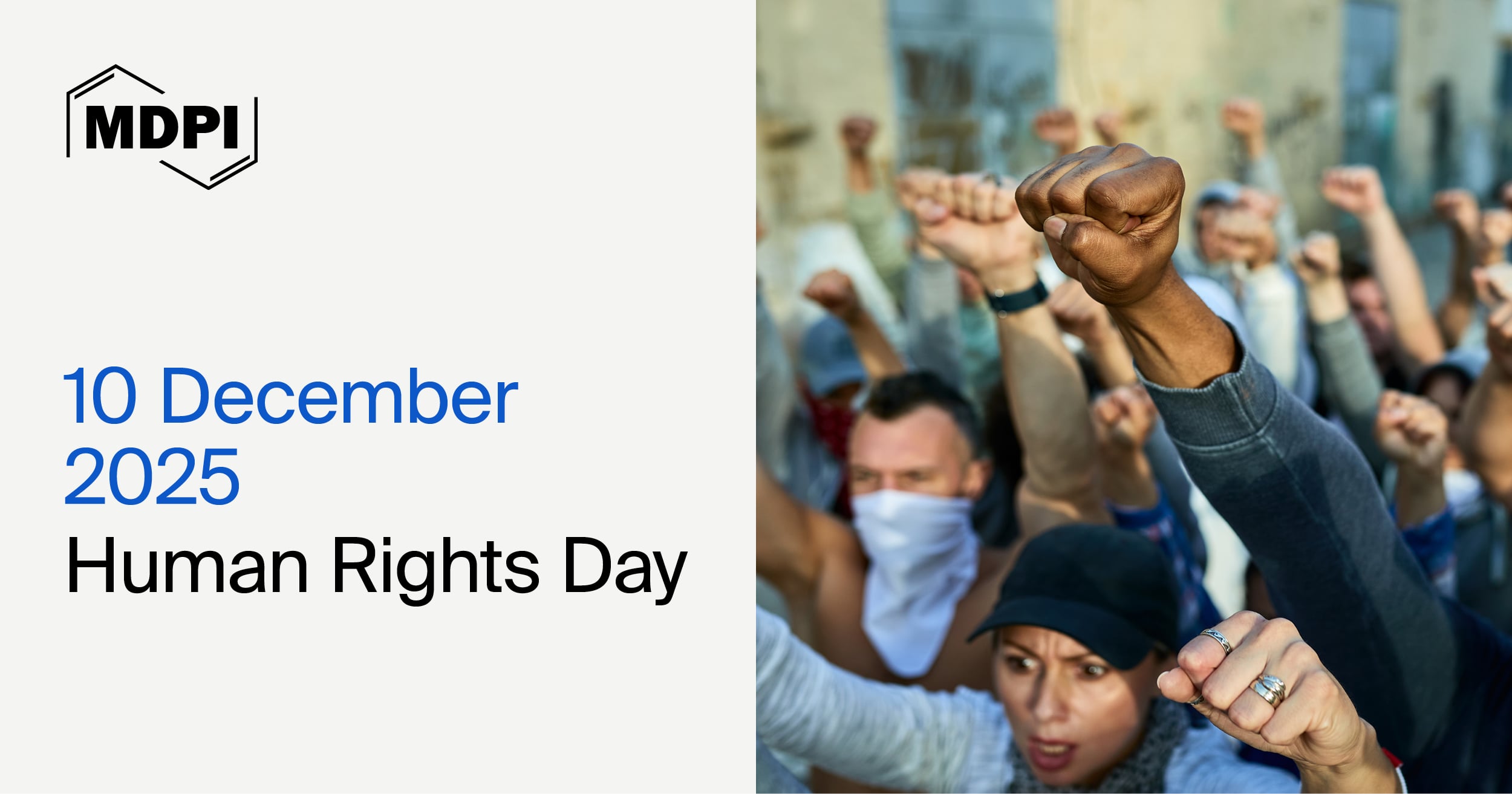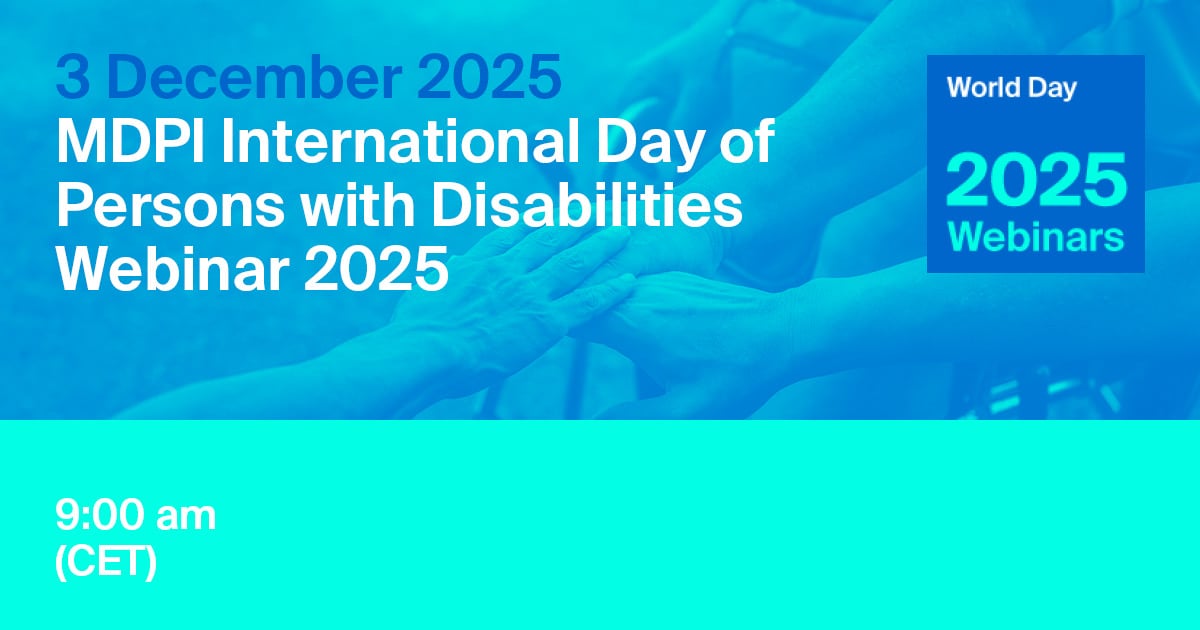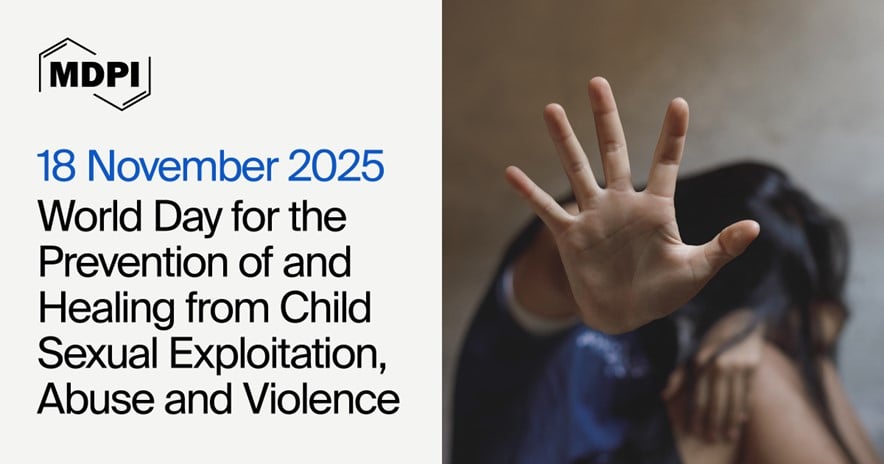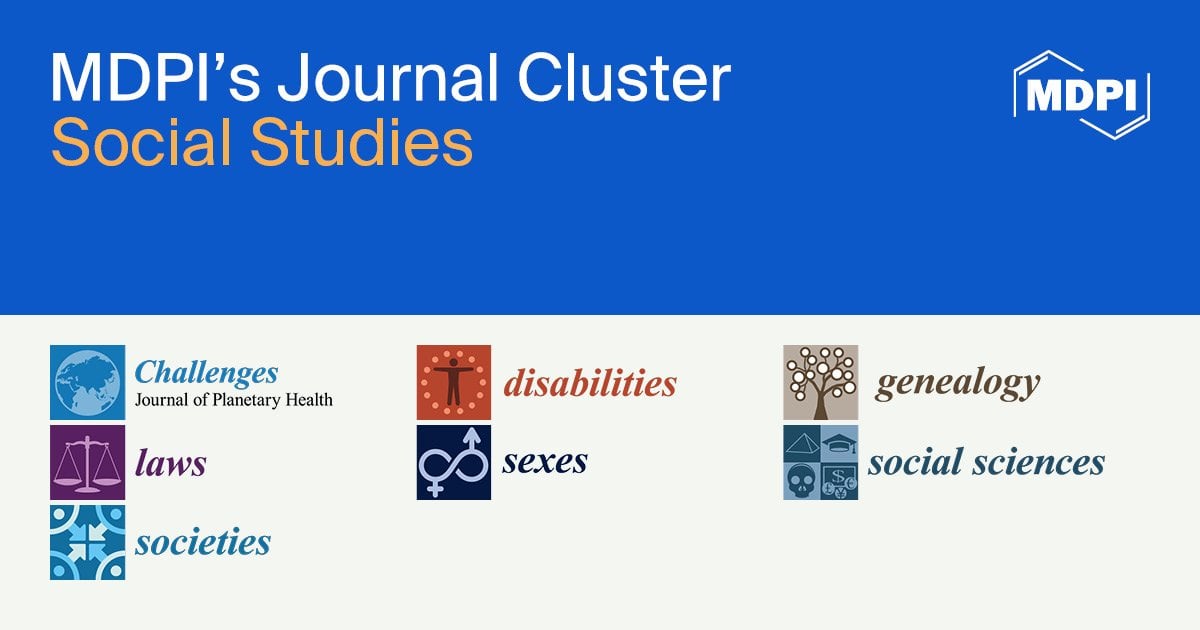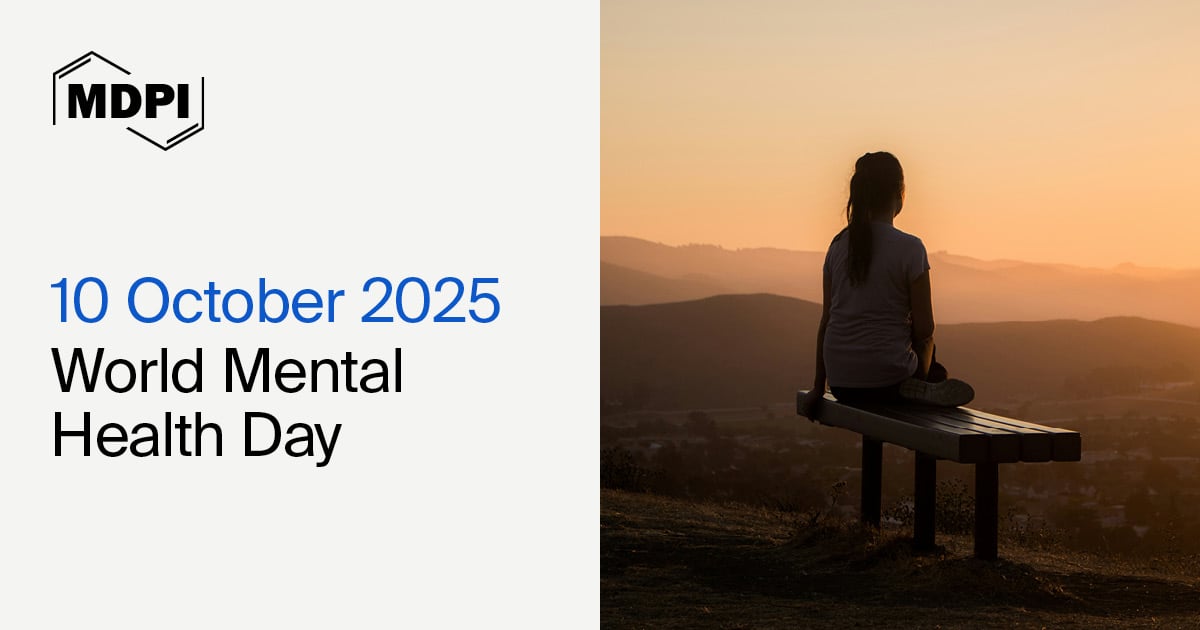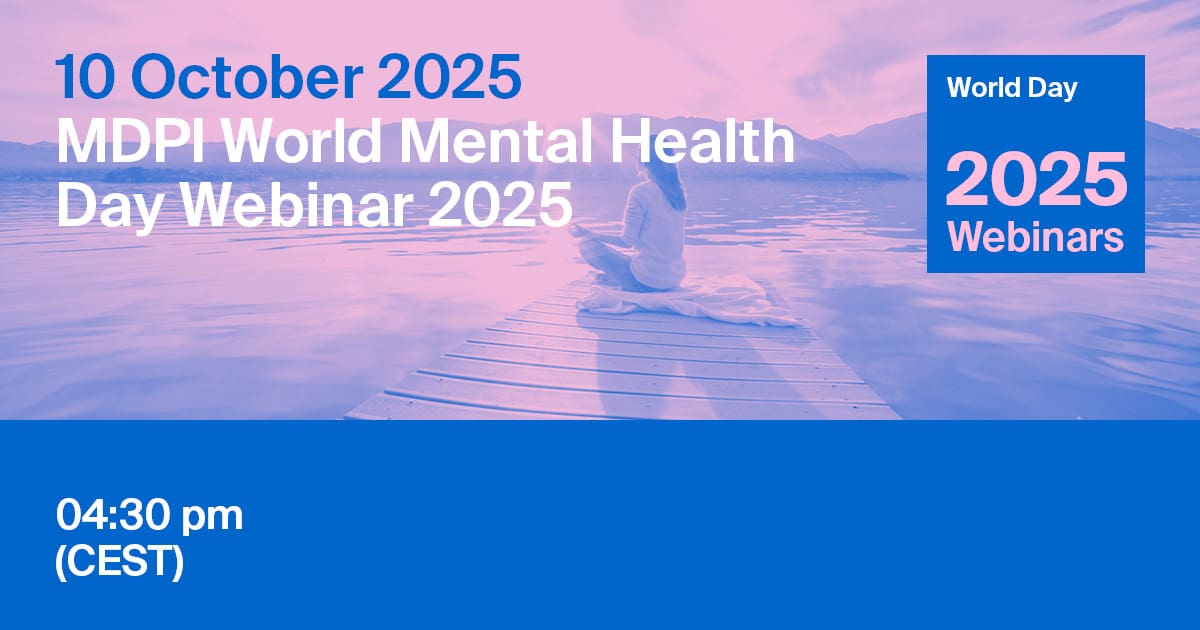- 1.4Impact Factor
- 1.9CiteScore
- 51 daysTime to First Decision
News & Conferences
Latest News & Announcements
Latest Conferences
Propose a Conference Collaboration
Promote and publicise your upcoming conference with MDPI.
All News & Conferences
News & Announcements
Article Layout and Template Revised for Future Volumes
11 December 2025
News & Announcements
Human Rights Day—“Human Rights, Our Everyday Essentials”, 10 December 2025
10 December 2025
3 - 3 December 2025
News & Announcements
MDPI Webinar | International Day of Persons with Disabilities, 3 December 2025
27 November 2025
News & Announcements
MDPI’s Journal Cluster of Social Studies
13 November 2025
News & Announcements
MDPI Launches the Michele Parrinello Award for Pioneering Contributions in Computational Physical Science
6 November 2025
News & Announcements
MDPI INSIGHTS: The CEO's Letter #28 - WSF11, Nobel Laureates, Proofig AI, Romania Summit, STM and FBF
4 November 2025
News & Announcements
MDPI’s Newly Launched Journals in September 2025
15 October 2025
News & Announcements
World Mental Health Day—“Mental Health in Humanitarian Emergencies”, 10 October 2025
11 October 2025
News & Announcements
Conference Collaboration: Editorial Board Members and Guest Editors of Disabilities Attended Academic Conferences
9 October 2025
MDPI Conference
MDPI Webinar | World Mental Health Day, 10 October 2025
10 - 10 October 2025
of 9



